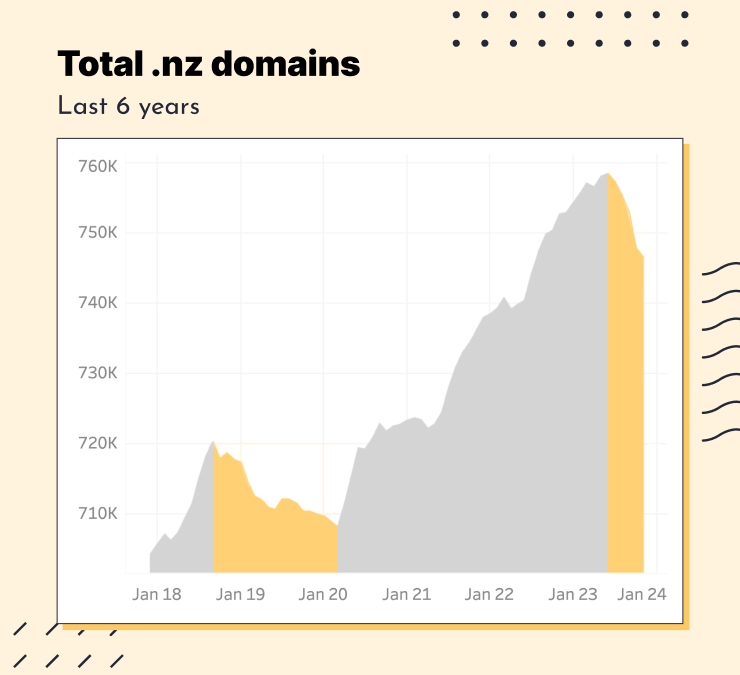Platforms and Pricing Power: Shopify’s Plus-Sized Move
A 20% price increase shines a light on the big trade-off involved with Shopify. Is the convenience worth the cost and the lock-in?


This month, Shopify Plus plans have gone from “starting at” US$2,000 to “starting at” US$2,500 a month. That comes about a year after most other Shopify plans went up by about a third. It’s a big jump at a time when a lot of retail businesses are already dealing with more economic headwinds than usual.
For the record, the price that you’d pay to host WooCommerce stores of any size with us hasn’t changed for years. Not since we made our Web Hosting packages bigger and better in 2021.
So we reckon that now is a good time to revisit a question that we first posed in 2022: Should you build your new store on Shopify?

How much should you pay for the technology behind your web store?
Lock-in in Action
The business plan behind Shopify, and many other all-in-one website platforms, is fairly straightforward. They make it easy for new customers to get started, gradually more expensive to stay, and surprisingly hard to leave.
To put it another way, lock-in is a feature of the system. You can’t export your Shopify store to another platform, or shift it to a cheaper web host, or even download all the data you’d need to easily rebuild your store somewhere else.
One of Shopify's main sources of growth isn’t working like it used to. Shopify is looking at what it can make from customers who are already locked into their system.
That’s why they know they can get away with it when they add 20% or 30% to their monthly prices.
Pricing Power On Display
It’s not entirely surprising that Shopify has decided to bump up prices now. There are plenty of signs that new customers are getting harder to find. One rare sign of shrinkage is in the declining number of .nz and .au domains under management, for example.

Around the world inflation is high, borrowing to start a business is more expensive than it used to be, and potential shoppers have a cost-of-living crisis to deal with. It stands to reason that there are fewer new web stores being launched.
In sum, one of Shopify's main sources of growth isn’t working like it used to. That’s a problem for the company and its shareholders.
As CNBC reported this month, a cloudy future is already carrying a cost:
"Shopify shares closed down 13.4% on Tuesday after the Canadian e-commerce company reported better-than-expected earnings for the fourth quarter but gave mixed guidance for the current period."
With income forecasts falling far below analysts' expectations, Shopify is looking at what it can make from customers who are already locked into their system. Those customers don’t have many realistic options other than paying up as their monthly or annual bills get bigger and bigger.
Other Options Change The Maths In Your Favour
There are plenty of ways to sell things online, of course, and a lot of your options don’t come with lock-in and regular price rises.
WooCommerce is a WordPress plug-in that turns the world’s most popular CMS into an ecommerce platform. If you’re looking at ways to build an online store, this is definitely worth investigating. Let’s be clear about this: WordPress and WooCommerce are both free to use. There are countless hosting options (including our own WordPress Hosting) to assess and compare, and you always have the option of shifting your store to a new provider.
Or if you want the convenience of a build-your-own-store platform, but not the prices that Shopify charges, look into our Website Builder. Its ecommerce features let you manage stock, accept payments, define your own product data, and more. It’s a step away from the open-source mentality of WordPress and towards easy DIY websites, but not a leap into complete lock-in.

Easy-to-use ecommerce tools don't have to cost a lot.
A (Dollar) Sign of the Times
Shopify’s price rises aren’t too surprising to anyone who’s been keeping an eye on the software-as-a-service industry. Times are tougher, investors are less keen to fund 'growth now' in exchange for 'profits later', and every dollar that you earn today is more valuable than one you earn tomorrow.
This is why we’ll be keeping an eye on other all-in-one website platforms, to see how they respond - and how they treat their customers. Will we see more companies juicing their locked-in user bases? Will the long-term benefits of hosting an open-source CMS for yourself pay off even more than usual? Watch this space.
Hosting and Domains
Find What You Need, Enjoy Fair Prices
Web Hosting
From $8.95/mo
Domains
From $12.50/yr
WordPress Hosting
From $8.95/mo
Website Builder
2 websites for $15/mo
Sound advice
We've helped a lot of businesses get started online. If there's anything you want to ask, we're here to help you join them.
Contact UsReal Words From Real MyHost customers
Went from Crazy Domains to MyHost and the service in both is very good, however the speed and ease of use is not even comparable. If your looking for a easy to modify and simple hosting/domain service MyHost is where you go. The price is way better, the speed was within two hours to change and any adjustments to DNS settings happen instantly, not to mention your DNS is fully customizable at the basic rate. ★★★★★

Awesome service. Answered every question super fast. Guided me through the process and followed up consistently to make sure everything was OK. Just awesome service. Couldn't be happier. ★★★★★

Fantastic support. Good pricing ...and a control panel that just works without trying to up-sell and randomly include extra things I didn't ask for. So impressed, I'm migrating domains from a number of other providers who struggle with one or more of the above.
